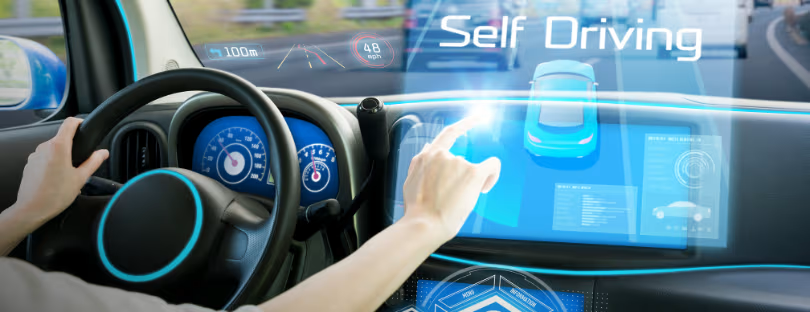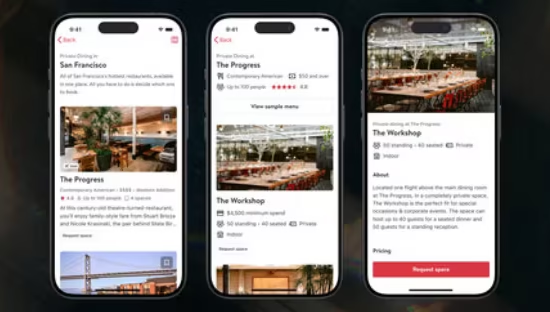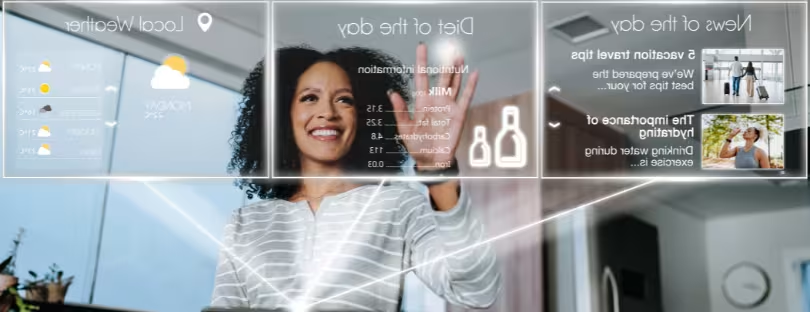
Connected Cars on the Fast Lane to $100 Billion — and eSIMs Are in the Driver’s Seat
When most of us think about cars evolving, the first images that come to mind are electric drivetrains, self-driving systems, or flashy infotainment dashboards. But quietly, another transformation is taking place—one that’s just as significant. Cars are becoming deeply connected, not only to our phones and homes, but also to networks, data systems, and even our workplaces.
Two recent reports highlight just how quickly this shift is happening. On one hand, the connected car devices market is expected to grow into a USD 100 billion industry by 2033, driven by demand for smarter, safer, and more efficient vehicles. On the other hand, eSIM technology is becoming a central piece of that puzzle, enabling vehicles to act as reliable, always-on communication hubs. In fact, as Ubigi’s CEO recently pointed out, cars are now turning into mobile offices, and more automakers are preparing to integrate eSIM capabilities in the coming years.
This isn’t just about high-end luxury cars offering a few extra perks. It’s a fundamental reimagining of what vehicles can do in daily life, for commuters, business travelers, and entire fleets. Let’s break down what’s driving this growth, why eSIMs matter so much, and what it means for drivers and businesses alike.
The Market Momentum
The numbers tell a clear story: connected car devices are no longer a niche. In 2024, the market was worth around USD 40 billion, and within less than a decade, it’s projected to reach USD 100 billion. That kind of growth doesn’t happen by accident. It’s being fueled by a combination of consumer demand, regulatory pressure, and technological breakthroughs.
Drivers today expect their cars to be more than machines on wheels. They want real-time navigation, diagnostics that flag problems before they happen, entertainment that feels seamless, and connectivity that doesn’t drop when crossing borders. On the back end, regulators are pushing automakers to improve safety, reduce emissions, and tighten cybersecurity standards, which makes connectivity less of an option and more of a requirement.
At the same time, the business model is shifting. It’s no longer about selling hardware alone. Automakers and tech companies are increasingly leaning on subscription-based features—from advanced infotainment to predictive maintenance alerts—creating ongoing revenue streams while giving drivers new layers of convenience.
Why eSIMs Are the Game-Changer
Amid all this, eSIM technology is emerging as one of the most important enablers. Unlike traditional SIM cards, which require physical swapping, eSIMs are embedded directly into the vehicle and can be activated or updated remotely. This may sound like a small detail, but in practice, it changes everything.
Ubigi’s CEO describes it well: cars equipped with eSIMs are becoming extensions of our digital lives, essentially functioning as mobile offices. That means stable, high-quality internet connections on the go—not just for streaming music, but for secure work calls, VPN access, and even cloud-based applications that require low latency. By 2030, it’s estimated that 95% of new vehicles will come with built-in connectivity, showing just how fast adoption is accelerating.
BMW and MINI are already offering embedded eSIM options, and more automakers are lining up to follow. Ubigi itself is making the service more accessible by cutting eSIM pricing in several European countries, ensuring that connectivity isn’t reserved for premium buyers alone. And because cars use their own antennas rather than relying on a smartphone’s weaker signal inside the vehicle, the quality of connection is often more stable and reliable.
What It Means for Drivers and Businesses
For everyday drivers, this shift means cars will increasingly feel like connected devices rather than stand-alone machines. Commuters might enjoy uninterrupted entertainment and navigation, while frequent travelers could benefit from seamless roaming without fiddling with SIM cards or mobile hotspots.
For businesses and fleet operators, the implications are even bigger. eSIM-enabled vehicles make it easier to monitor performance, manage compliance, reduce downtime, and keep teams connected on the road. A connected fleet can be tracked in real time, updated remotely, and integrated with digital tools that streamline logistics or customer service.
But with opportunity comes responsibility. The more data cars generate and transmit, the greater the need for robust cybersecurity and clear rules around data privacy. Regulators are already paying attention, and automakers will need to balance innovation with consumer trust.
The Road Ahead
The connected car market is moving fast, and eSIMs are right at the heart of that transformation. Over the next decade, expect cars to evolve into always-on platforms—not just for entertainment, but for work, safety, and smarter mobility as a whole.
The bottom line? Cars are no longer just about horsepower or design. They’re about connectivity, intelligence, and integration into our digital lives. And with a market set to hit USD 100 billion by 2033, this isn’t just a trend—it’s the new reality of driving.











